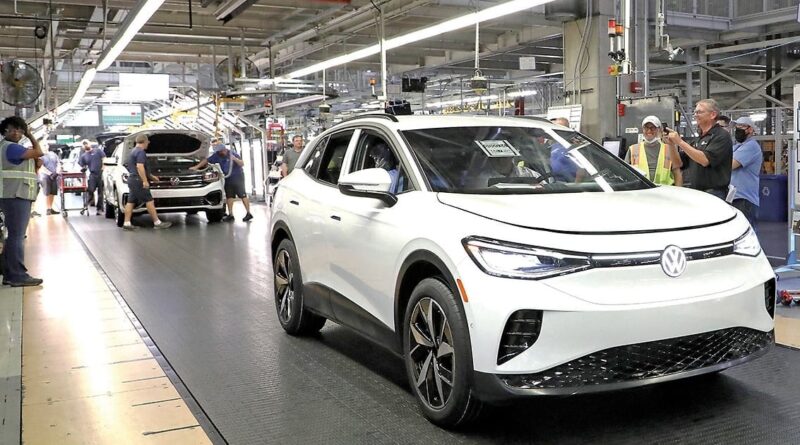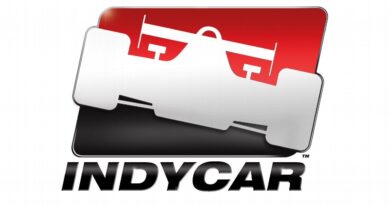VW, Rivian confirm EV tax credit eligibility
WASHINGTON — Electric vehicles from Volkswagen Group of America and some EVs made by Rivian Automotive will qualify for tax credits under the newly effective battery sourcing rules, the two automakers confirmed Wednesday.
All variants of VW’s 2023 ID4 are eligible for the full $7,500 tax credit this year.
“The ID4 is already one of the lowest-priced electric SUVs on the market, and the $7,500 federal tax credit makes it even more attainable,” Pablo Di Si, CEO of VW Group of America, said in a statement. “This shows that we made the right decision to localize production of the ID4 in Tennessee and invest even further in battery production, components and innovation.”
As of Wednesday, VW was the only international automaker to have a battery-electric vehicle eligible for the full credit.
Meanwhile, only certain Rivian R1S and R1T configurations are eligible for a $3,750 credit. While the SUV and pickup start in the $70,000s, most are expected to be configured at sticker prices higher than the $80,000 maximum threshold, which would make them ineligible for the credit.
In a statement to Automotive News, Rivian said it had “submitted updated documentation to the IRS stating that its 2023 R1T and R1S models qualify for the critical minerals sourcing criteria” and expected the eligibility change to be reflected pending future updates.
Under the Inflation Reduction Act, buyers who meet certain income thresholds can get a tax credit of up to $7,500 for new EVs assembled in North America that also meet sticker price restrictions.
As of Tuesday, the credit — known as 30D — was split in two, with $3,750 for EVs that have at least 40 percent of the value of the battery’s critical minerals extracted or processed in the U.S. or in a country where the U.S. has a free-trade agreement, or from materials that were recycled in North America. Another $3,750 is available if at least half of the value of the EV’s battery components are made or assembled in North America.
Those percentages ramp up over time, maxing out at 80 percent in 2027 for minerals and 100 percent in 2029 for battery components.
Only 11 EV models qualified for the full credit under the stringent sourcing requirements — with U.S. automakers such as General Motors, Ford and Tesla better positioned to qualify than foreign competitors with supply chains overseas.
Automakers including BMW, Genesis and Nissan had vehicles previously eligible for the tax credit. None of their vehicles qualify under the new restrictions, the list showed. However, some automakers such as Hyundai Motor Group and Nissan plan to manufacture EVs in the U.S., potentially allowing some models to qualify for at least partial credit in the future.
In a statement Monday, the Alliance for Automotive Innovation said the updated list of eligible vehicles “isn’t a surprise.”
“Keep in mind: The IRS guidance isn’t frozen in time. The content thresholds will ramp up in the coming years,” said John Bozzella, CEO of the alliance, which represents most major automakers in the U.S. “The IRS list of qualifying vehicles could also change over time (both up and down) as supply chains localize and our country partners with allies on mineral agreements — something that is well underway.”
It is unclear how the number of eligible vehicles might be further slashed next year when additional exclusions affect EV battery sourcing rules.
Starting in 2024, vehicles are ineligible if they contain any battery components manufactured by a “foreign entity of concern,” which could include companies controlled by China. That exclusion starts in 2025 for critical minerals.
Treasury still needs to release guidance on how strictly it will enforce the provision.
Source : Autonews.com




